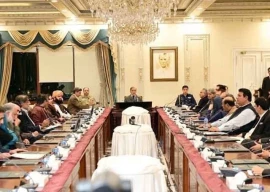
Two recent decisions by the courts in Sindh concerning International Parental Child Abduction under the Hague Convention are being considered as the first judicial success of the Convention in Pakistan. These two decisions came from Family Court Judge Malir Karachi and the Sindh High Court.
The Sindh High Court ordered a Pakistani woman to return a child back to the United States – a testament to the practical application of the Hague Convention in Pakistan. This ruling sets a precedent and signals a positive trend towards the enforcement of the Convention in the country. The detailed judgment of the Sindh High Court highlighted that Pakistan ratified the Hague Convention on the Civil Aspects of International Child Abduction in December 2016, with enforcement taking place in March 2017. The Hague Convention, 1980 has been added to the Schedule of the West Pakistan Family Courts Act, 1964 to bring international child abduction cases within the jurisdiction of the Family Courts of Pakistan. This treaty aims to swiftly return children who have been wrongfully taken or held across international borders and safeguard their associated rights.
In this particular case, the mother was married in the US, with the marriage legally recognised under the US laws. Furthermore, the child was born in the US. However, the mother made the decision to unlawfully transport the child to Pakistan. Based on her own admission in the court, the mother has seemingly destroyed the US passport of the child and tampered with the Pakistani passport. She has also refused to provide information about the child’s schooling in Karachi, and despite being given two opportunities, she failed to appear in court with the child. These actions strongly suggest that she intends to keep the child hidden and evade the red warrant issued against her. Considering these indicators, there is a lack of confidence that she is capable of taking care of the best interests of the child.
Both the courts have upheld the foreign court judgments on the custody issues and ordered the mother to return the child back to its habitual country. The courts have followed the spirit of the Hague Convention, removed legal obstacles and provided guidelines to the family courts and litigants that the compliance of international conventions and treaties do not follow domestic laws if the States have agreed to follow specific provisions on reciprocal basis.
Both these judgments have vehemently involved the other state’s organs like Ministry of Interior, Federal Investigation Agency and Human trafficking units and Consulate Section of respective Embassy and have assigned them administrative responsibilities to assist the court to implement the court order under international convention.
These judgments have opened and discussed all available legal avenues related to international parental child abduction issues that the judiciary will face while deciding child custody cases in near future. The judgments have covered and observed all issues related to child custody mentioned in Guardian and Ward Act and the Hague Convention. The judgments reflect and contain high standard of reciprocity of international comity, compliance and solution-oriented schemes and way forward to resolve international parental child abduction issues in an understandable and non-conflicting modes.
Looking ahead, Pakistan’s adherence to the Convention could have far-reaching implications. It sends a strong message to other countries about Pakistan’s commitment to child protection and its willingness to cooperate with international partners on this critical issue. Furthermore, the effective implementation of the Convention can enhance Pakistan’s international standing. It can contribute to the country’s reputation as a responsible member of the international community that respects and upholds international law. In the future, the Convention’s implementation could also have a significant impact on Pakistani families.
However, the road to effective implementation is not without challenges. It requires continuous efforts to raise awareness about the Convention’s provisions among the public and the legal community. It’s hoped that the Convention will serve as a robust tool for safeguarding the rights of children and their families.
It would be beneficial for the judiciary to identify specific departments or units that would be responsible for educating about the Convention and the Standard Operating Procedures (SOPs) that need to be followed. By identifying specific departments and incorporating the Hague Convention and its SOPs into their functions, Pakistan can ensure a more systematic and effective implementation of the Convention.
These programmes should focus on the Convention’s provisions, its interpretation and its application in various scenarios. These interactive sessions could also include discussions on the cultural, social and legal challenges specific to Pakistan that may arise in such cases. Moreover, these seminars could serve as a platform for younger lawyers to interact with seasoned professionals, fostering a culture of mentorship and continuous learning within Pakistan’s legal community. This not only enhances the professional development of younger lawyers but also contributes to the broader goal of strengthening the implementation of the Hague Convention in Pakistan. Such interactive sessions can help in clarifying ambiguities and understanding the practical challenges in implementing the Convention.
Another crucial step is the creation of comprehensive reference materials. These materials, including handbooks and guides, should explain the Convention’s provisions in simple language and provide guidance on handling cases related to child abduction. They can serve as a valuable resource for legal professionals dealing with such cases. Lastly, promoting collaborative learning can significantly enhance the understanding of the Convention. Encouraging the exchange of knowledge and experiences among legal professionals can facilitate this. Online forums, discussion groups and other digital platforms can be effectively used for this purpose.
In conclusion, a multi-pronged approach involving training programmes, workshops, reference materials and collaborative learning can significantly enhance the understanding of the Hague Convention among lawyers and judges in Pakistan. This can, in turn, pave the way for effective implementation of the Convention in the country.
Published in The Express Tribune, April 15th, 2024.
Like Opinion & Editorial on Facebook, follow @ETOpEd on Twitter to receive all updates on all our daily pieces.






























-(1)1714378140-0/AliAminMaryam-(4)-(1)1714378140-0-270x192.webp)


1714371551-0/MahiraArijit-(1)1714371551-0-270x192.webp)






COMMENTS
Comments are moderated and generally will be posted if they are on-topic and not abusive.
For more information, please see our Comments FAQ